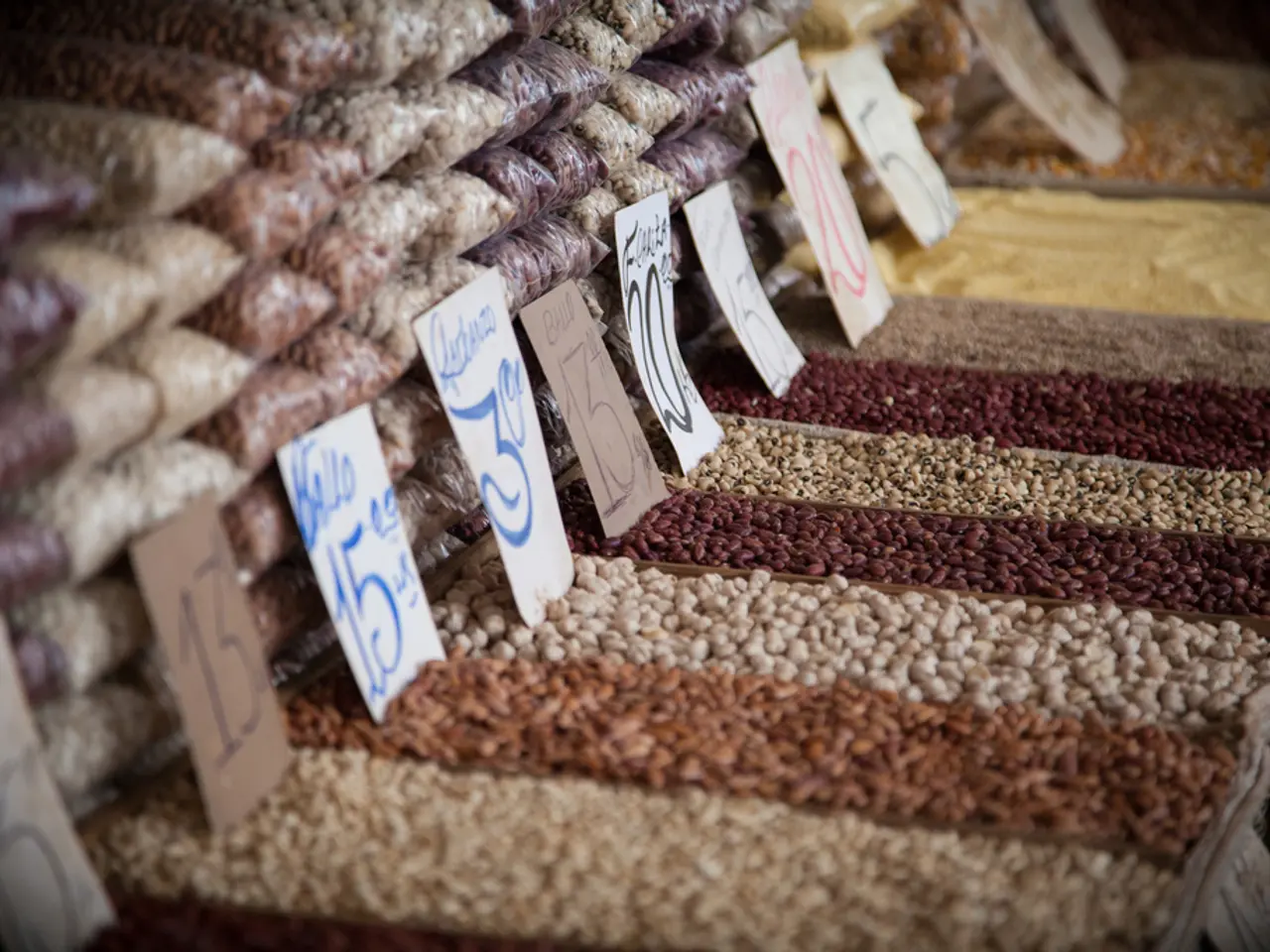Grain farmers predict a harvest of approximately 40 million tons
The German grain harvest in 2025 presented significant regional differences, influenced by a dry spring, variable rainfall, and aphid threats, impacting both quantity and quality of grain production.
A dry spring, marked by less than 50% of normal precipitation from February to April, caused early stress on crops in most regions of Germany. This was followed by persistent and sometimes excessive rainfall during the harvest period, which hindered fieldwork and led to quality problems such as lower protein content and falling number deficiencies, especially in winter wheat grown in certain "red zones." These weather extremes created pronounced regional disparities, with some areas suffering deterioration in baking quality, while others showed potential improvement.
Despite these challenges, total grain production rose by 11% compared to 2024 to 43.5 million tonnes, driven by expanded cultivation areas and improved yields per hectare. Winter wheat, the dominant crop, saw production increase to 21.7 million tonnes, with barley and rapeseed also showing modest gains or stable output.
Regarding aphid threats and pest pressures, restrictive crop protection regulations combined with favourable conditions for pests raised concerns among farmers and agricultural organisations. Escalating pest and disease pressures, including from aphids, were identified as serious risks to grain quality and sustainable production.
The German Farmers' Association predicts a grain harvest of 40.1 million tonnes, slightly more than last year's 39 million tonnes. If realised, this harvest would mark a return to normal conditions in the EU, according to President Joachim Rukwied of the German Farmers' Association.
However, the farmers face "very tight" calculations due to continued high costs for fertilizers, energy, and plant protection products. The total area for grain cultivation in Germany is 5.86 million hectares, with almost half dedicated to winter wheat, the most important variety.
The weather in the coming months will be crucial for the harvest of potatoes, sugar beets, maize, and further grass cuts for animal feed. Aphids pose a significant threat to several crops, including potatoes, sugar beets, onions, red beet, red cabbage, and potentially others. The virus transmitted by aphids can cause significant damage to crops.
President Rukwied stated that the crops in Germany present a heterogeneous picture. The situation remains critical, as stated by Rukwied, with the crops in Germany showing a diverse response to the weather conditions. The EU is expected to produce an estimated 280 million tonnes of grain, a ten percent increase from the small harvest in 2024.
The persistent and sometimes excessive rainfall during the harvest period, impacting the quality of crops, is a weather-related issue that hindered fieldwork and led to lower protein content and falling number deficiencies, especially in winter wheat grown in certain "red zones." The aphids pose a significant threat to several crops like potatoes, sugar beets, and onions, with the virus transmitted by aphids causing potential damage.








